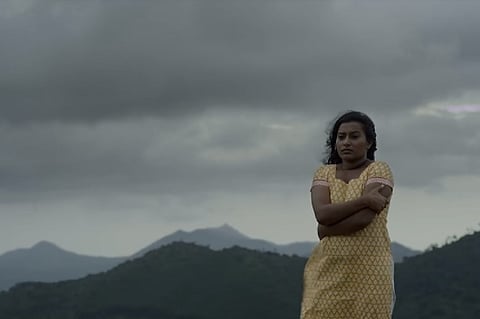

Muhammad Razi’s Velutha Rathrikal (White Nights) is one of the most exciting debuts in recent times among independent film-makers in South India. From the looks of it, the film seems unpromising. Yet another adaptation of Fyodor Dostoevsky’s story ‘White Nights’ (there have already been nine or ten film versions of it including an earlier Tamil version Iyarkai) with a lesbian twist and located in a tribal region of Attappadi in Kerala, it threatens to be the worst sensationalist and exploitative rendering of the story.
But Razi’s sensitive and understated directorial vision makes this an extraordinary, rapturous and deeply resonant film that stays with you long after the credits have rolled. It is by no means a flawless film and opens in a contrived and stagey manner as the man and woman meet in the middle of the night in a stunning Kerala landscape. But by the end of the film, the awkwardness of the heterosexuality of these two love-lorn people has become a cumulative experience that makes one re-think the stagey start.
The tribal context also at first seems both staged and contrived, and somewhat romanticised, with a focus on rituals and practices. But, again, by the end, when the tribal community is shown as deeply homophobic in rending the two women apart and the serious health issues of the community show the complex reading of the tribal context.
Further, the non-tribals, across caste and class, are shown as equally complicated and racked with problems. The painter-protagonist loses his bohemian girlfriend in what looks like a communal riot, the world of migrant labourers in Coimbatore is violent and difficult, people in Nepal suffer an earthquake. All these lives intersect with those of the tribals in Attappadi.
But the overwhelming triumph of the film is its portrayal of same-sex love. It is arguably India’s first serious film about bisexuality. At the heart of the film is a woman who loves another woman and is waiting for that woman to return and eventually chooses the woman over the man who has just professed his love for her. None of this is done sensationally at all. The woman very casually tells the man on the first night that the love of her life and the reason why she is crying alone in the middle of the night on a bridge is a woman. The relationship between the women is portrayed with the right mixture of awkwardness and great, abiding love. She loves the man too and tells him that before she leaves with the woman. She tells him she loves him with all her heart and more than anyone else at the moment she leaves. In between, she is married to a violent man with whom she has a daughter. Her initiation into the violence of enforced heterosexuality is also chronicled with a subdued texture.
Indeed, the texture of the film as a whole is subdued, slow-paced and resonant. Whether it is lighting, the verdant and occasionally violent landscape of Attappadi being brought to life (there’s an extraordinary scene of the two women in a field of violently swaying bushes and Shehnad Jalal’s cinematography as a whole is superb) or the unassuming and unobtrusive performances from Smitha Anbu, Saritha Kukku and Disney, the three main actors, the film builds a haunting world that is as much physical as emotional.
At the centre of the film are two women whose lives and subjectivities are sensitively etched, something rare to find in South Indian (or indeed any Indian) cinema. The violence of South Indian patriarchy and compulsory heterosexuality is brought in by avoiding the obvious. There are some truly stunning moments in the film like when a tribal man who receives education and is alienated and derailed by it stares at a painting by the protagonist for many moments, comes, takes a cigarette from the mouth of the painter and leaves. Or the effect of linguistic violence when the woman’s daughter asks each word for sky, cloud and so on in Malayalam as she only knows the words in her tribal language. Her mother then speaks of how she too had to develop and deal with this double consciousness.
Velutha Rathrikal shows Razi’s politics clearly (the version that influenced him most he said at the screening at the 4th Chennai Documentary and Short Film Festival for which it was the curtain raiser, is Visconti’s) but, more than that, it shows the quiet brilliance of his vision. An FTII graduate, he is a silent man, found at street corners in cities across the country, smoking and listening in silence. It is this FTII that the Hindu Right wants to destroy. It is this FTII that will hopefully still produce more Razis in the world.